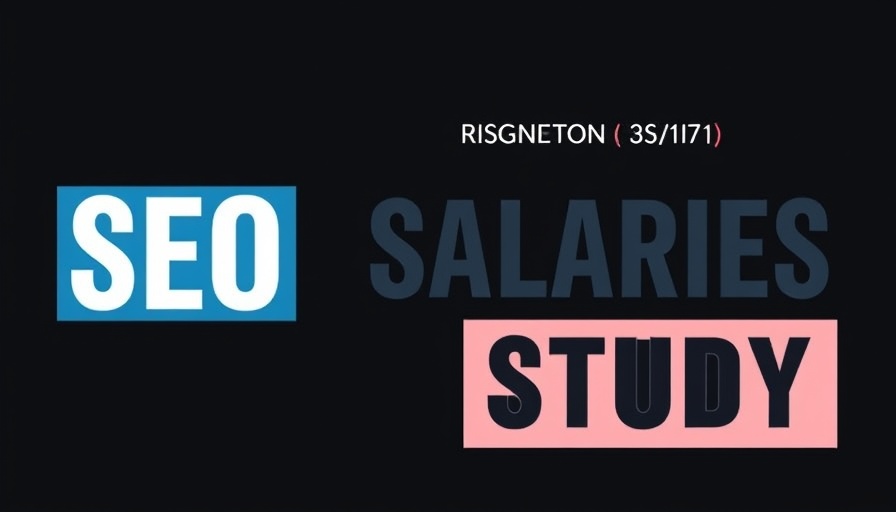
Freelance vs. In-House SEO Salary in 2025: Who Earns More?
Update Freelance vs. In-House SEO Salaries: A Comprehensive Analysis for 2025 As the digital landscape continues to evolve, so too do the salaries of those who navigate it. The latest findings from a 2025 global survey highlight intriguing disparities between freelance SEO professionals and their in-house counterparts. While the average income of an SEO professional varies significantly by location and work model, insights from the survey indicate a noteworthy trend: on a global scale, freelancers tend to earn more than their in-house peers—by a median of 14.4%, to be precise. Decoding the Salary Disparities At first glance, the statistics paint a clear picture: freelancers earn a median annual salary of $58,000 compared to $50,675 for in-house SEOs. However, this generalization does not hold across all regions. For instance, in the European Union, freelancers enjoy a commanding 28.6% higher median income than in-house employees. This disparity arises from a market that more frequently rewards independent work, positioning freelancers as potentially more lucrative earners. In contrast, the situation in the United States flips the narrative. Here, freelancers earn, on average, 25% less than in-house SEOs, with the traditional employment model providing superior financial rewards. This anomaly underscores the importance of understanding regional dynamics when it comes to SEO compensation. Job Satisfaction: Freelancers vs. In-House SEOs Income isn't the only measure of success—job satisfaction plays a crucial role in the overall happiness of professionals in this field. Notably, nearly 40% of freelancers believe their earnings are competitive, compared to just 24% of those employed in-house. The UK emerges as a particularly optimistic region, where half of freelancers feel positively about their earning potential. These sentiments do not necessarily correlate linearly with income; rather, they highlight the value freelancers find in greater autonomy and flexibility. Interestingly, job satisfaction levels in the U.S. appear nearly equal across both models, suggesting that factors other than income—such as work-life balance and flexibility—play critical roles in determining an SEO professional's contentment. The Impact of Working Hours on Earnings The work schedule also significantly influences earnings. The survey reveals that only 13.7% of freelancers adhere to a standard 40-hour workweek. Conversely, half of in-house SEOs do maintain this traditional structure. Many freelancers choose to work part-time, valuing the freedom that comes with setting their own schedules. Strikingly, freelancers working just 20 hours a week can earn around 64% more than their in-house counterparts who work full-time. In stark contrast, full-time in-house SEOs earn 18% more than freelancers in similar roles, illustrating how the amount of time worked directly correlates with potential earnings. This complexity invites businesses and agencies to reconsider how they approach compensation packages tailored for different SEO roles. Future Predictions: What Lies Ahead for SEOs? With the ongoing advancements in AI technologies, the SEO landscape is poised for transformative changes. As the demand for effective digital marketing strategies grows, businesses may increasingly shift towards hiring SEO experts—whether in-house or freelance. The rise of AI tools and automated platforms offers opportunities for professionals to enhance their productivity and expand their capabilities, potentially leading to higher earnings. Moreover, as businesses lean toward data-driven decision-making, understanding the dynamics of SEO salaries will be crucial for employers looking to attract top talent. Hence, navigating these shifts proactively may offer both marketplaces an edge, whether they are freelancers or agency-based. Embracing New Opportunities in SEO For both freelancers and in-house SEOs, the key takeaway from the current landscape lies in adaptability and a willingness to leverage technology for enhanced results. By embracing AI-driven tools, both categories of professionals can improve their output while potentially commanding higher salaries. In conclusion, as small business owners and marketers look to enhance their SEO strategies, understanding the interplay between freelancing and traditional employment can provide pivotal insights for shaping their marketing efforts. Those investing in SEO resources now may find themselves better equipped to navigate the complexities of this dynamic digital realm. Take Action: To thrive in the ever-shifting landscape of SEO, consider examining your current strategies and evaluating whether a freelance approach or in-house hiring would best serve your goals. Stay informed, adapt early to emerging trends, and be sure to explore AI-driven solutions that can refine your marketing efforts.

SEO Content Writing 2025: Mastering User Intent and AI Integration
Update The Rising Standard of SEO Content Writing in 2025 As digital marketing evolves, so does the necessity for robust SEO content writing strategies. By 2025, the landscape is visibly shaped by artificial intelligence and data analytics, transitioning from archaic keyword stuffing techniques to sophisticated practices that emphasize user intent and engagement. This shift is not merely a trend but a requisite for marketers aiming to stay competitive in an increasingly smarter search engine environment. Adapting to AI-Driven Content Creation Artificial intelligence (AI) tools have permeated various aspects of content creation, transforming how brands connect with their audience. Marketing execution services that leverage AI enable businesses to tailor their strategies effectively, ensuring that their content resonates with both users and algorithms. Embracing these technologies allows brands to analyze their performance in real-time, driving improvements that lead to a higher return on investment (ROI). Understanding User Intent: The Key to Effective Keyword Research In 2025, keyword research has transcended basic identification to encompass a deeper understanding of user intent. Marketers can no longer rely solely on what users search; they must also grasp the underlying reasons behind those searches. AI-driven platforms provide insights that help decode this intent, revealing essential trends and guiding content creation to align with user expectations and needs. Building a Future-Ready Content Strategy Creating a sustainable content strategy involves organizing topics into clusters—a method that has become integral to effective SEO practices. By structuring content around core themes and related subtopics, marketers can enhance relevance and authority across their platforms. This approach not only improves the user experience but also enables search engines to better understand the context of the content, resulting in improved rankings and visibility. The Importance of Ongoing Optimization The importance of continuous content optimization cannot be overstated. As algorithms evolve, so too must strategies. Marketers should engage in a regular cycle of content audits, employing analytics to assess performance and identify opportunities for improvement. This practice should be a cornerstone of any SEO strategy, ensuring content remains competitive and relevant amidst changing digital landscapes. Challenges and Opportunities Ahead While adapting to these new SEO practices presents challenges, it also offers significant opportunities for brands willing to innovate. The landscape of SEO is becoming tightly integrated with advanced technologies that facilitate improved user experiences and efficiency. Organizations that embrace AI-driven practices will not only streamline processes but will also harness insights that can position them as leaders in their respective markets. Conclusion: Embracing Change in SEO Content Writing As we explore SEO content writing strategies for 2025, it is clear that adaptability is key. Marketers must embrace changes driven by technology and beyond, focusing on creating content that meets users at their point of need. By prioritizing user intent, employing advanced tools, and regularly optimizing content, brands stand a better chance of thriving in this new era of digital marketing. Understanding these dynamics presents a unique opportunity for companies to refine their content strategies and secure a viable competitive edge in the marketplace.

Harnessing AI Max Ad Group Settings: Key Insights for Marketers
Update Understanding AI Max Ad Group Settings: The Next Step Towards Automation In an ever-evolving digital advertising landscape, Google has introduced a new beta feature within Google Ads: the AI Max ad group settings. This innovation represents a significant shift from traditional keyword targeting methods towards a more automated, AI-driven approach to advertising. With AI Max, Google provides marketers with tools designed to enhance campaign performance while minimizing manual input. The Shift to AI-Driven Intent Prediction This recent update marks another step in Google's transition to digital advertising that leverages artificial intelligence to predict user intent. As noted by industry expert Thomas Eccel, the implications of this shift are profound. Google emphasizes that when AI Max is enabled, turning off search term matching will revert to a more manual process based on strict keywords and match types. This could significantly limit the performance potential that AI Max promises. What Does Search Term Matching Mean for Campaigns? Search term matching introduced with AI Max automatically expands your selected keywords to a broader reach. It utilizes Google's robust AI algorithms, which analyze the content of your landing pages and assets to discover additional search term potentials. This feature opens the door to capturing a wider audience while simultaneously reducing the administrative burden on marketers. A Double-Edged Sword: Control vs. Automation While the automation presented by AI Max holds great promise for efficiency, it also poses challenges. Small business owners and marketers may find themselves navigating between the enhanced performance capabilities of AI and the precision of traditional keyword matching. By disabling these AI features, campaigns can revert to a familiar yet restricted approach. This trade-off forces marketers to weigh the risks and benefits of trust in AI versus their conventional marketing instincts. Real-World Examples of AI Integration To illustrate the impact of such technology, consider a small business in the e-commerce sector. Previously dependent on precise keyword targeting, they leverage AI Max settings. Their enhanced ad visibility leads to increased click-through rates, thereby boosting conversions. The AI not only broadens their reach but also aligns their messaging with user intent effectively. Future Trends: Embracing an AI-Driven Marketing World The future of digital advertising is firmly rooted in AI technology, and marketers must prepare to adapt. As platforms like Google refine their AI capabilities, businesses that embrace these innovations are likely to enjoy a competitive advantage. Future trends suggest that marketing campaigns will increasingly rely on predictive analytics, automating personalized outreach while ensuring relevance. Practical Tips for Maximizing AI in Advertising For small business owners looking to integrate these AI Max features into their campaigns, here are several actionable insights: Test and Monitor: Gradually integrate AI features while continuously monitoring your campaign's performance. Balance Control: Maintain certain elements of manual oversight to ensure your brand message is consistent and accurate. Stay Informed: Regularly update your knowledge on AI advancements in digital marketing to stay ahead of the competition. Conclusion: The Ongoing Evolution of Digital Marketing As we navigate through this phase of digital marketing evolution, AI-driven tools like AI Max are poised to redefine how businesses connect with their audience. These tools promise to enhance efficiency and capture user intent more effectively than ever. Embracing this shift is vital for marketers aiming to remain relevant and competitive. Stay informed and proactive in adapting your strategies as digital marketing continues to evolve, and leverage AI as a partner in crafting intelligent campaigns that resonate with your audience.
 Add Row
Add Row  Add
Add 

Write A Comment